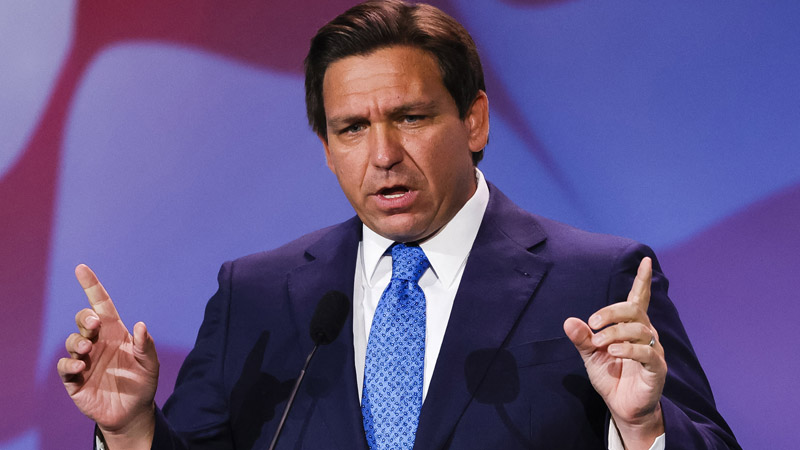In a significant legislative move aimed at addressing homelessness in the state, Florida has introduced a new law that prohibits homeless individuals from sleeping in public spaces such as streets and parks. This directive, championed by Governor Ron DeSantis, is set to take effect on October 1, 2024, marking a pivotal shift in the state’s approach to managing homelessness.
Underpinning this legislation is a commitment from the state to enhance the provision of alternative sleeping arrangements for the homeless population. Governor DeSantis has highlighted the state’s intention to improve access to private sleeping areas, particularly in situations where existing shelters reach full capacity. In line with this, the Florida Department of Children and Families is tasked with establishing designated camping areas where homeless individuals can reside for up to a year, told AP News.
These sites are to be free from alcohol and drug use, ensuring a safe and secure environment for the occupants. The law stipulates that these state-sanctioned tent cities are to be equipped with essential amenities such as toilets, alongside implementing necessary safety measures. This provision is part of a broader strategy to ensure that the encampments offer a viable and humane alternative to sleeping in undesignated public areas.
“I think this is absolutely the right balance to strike,” he mentioned. “We want to make sure we put public safety above all else.”
Moreover, the legislation mandates regional authorities to facilitate access to behavioral treatment services, which is a prerequisite for the establishment of any such encampment by a county or city. Governor DeSantis has articulated that the primary motivation behind this legislative action is the safeguarding of public safety. He asserts that providing sanctioned sleeping areas, complete with access to supportive programs and basic amenities, will significantly benefit the homeless community.
Such measures not only afford them a more stable living environment but also help in mitigating their presence in business districts and tourist-centric locations, thereby addressing potential concerns from these sectors. This legislative development comes against the backdrop of Florida’s homelessness statistics, which, as reported during the Legislature’s recent session, estimated the state’s homeless population at approximately 30,700 in 2023.
“This bill will not eliminate homelessness, but it is a start,” stated Republican state Rep. Sam Garrison. “And it clearly states that in Florida, our public spaces are worth fighting for.” However, critics say this law intends to round up homeless people and remove them from sight. “This bill does not and it will not address the more pressing and root cause of homelessness,” argued Democratic state Sen. Shevrin Jones earlier this year.
Although this figure is relatively modest in comparison to the homeless populations in some of the country’s larger cities, there is an underlying apprehension that these numbers could escalate in tandem with Florida’s rapidly expanding demographic. This law represents a proactive step by the state to manage this issue, aiming to strike a balance between the welfare of the homeless population and the broader interests of public safety and community well-being.



